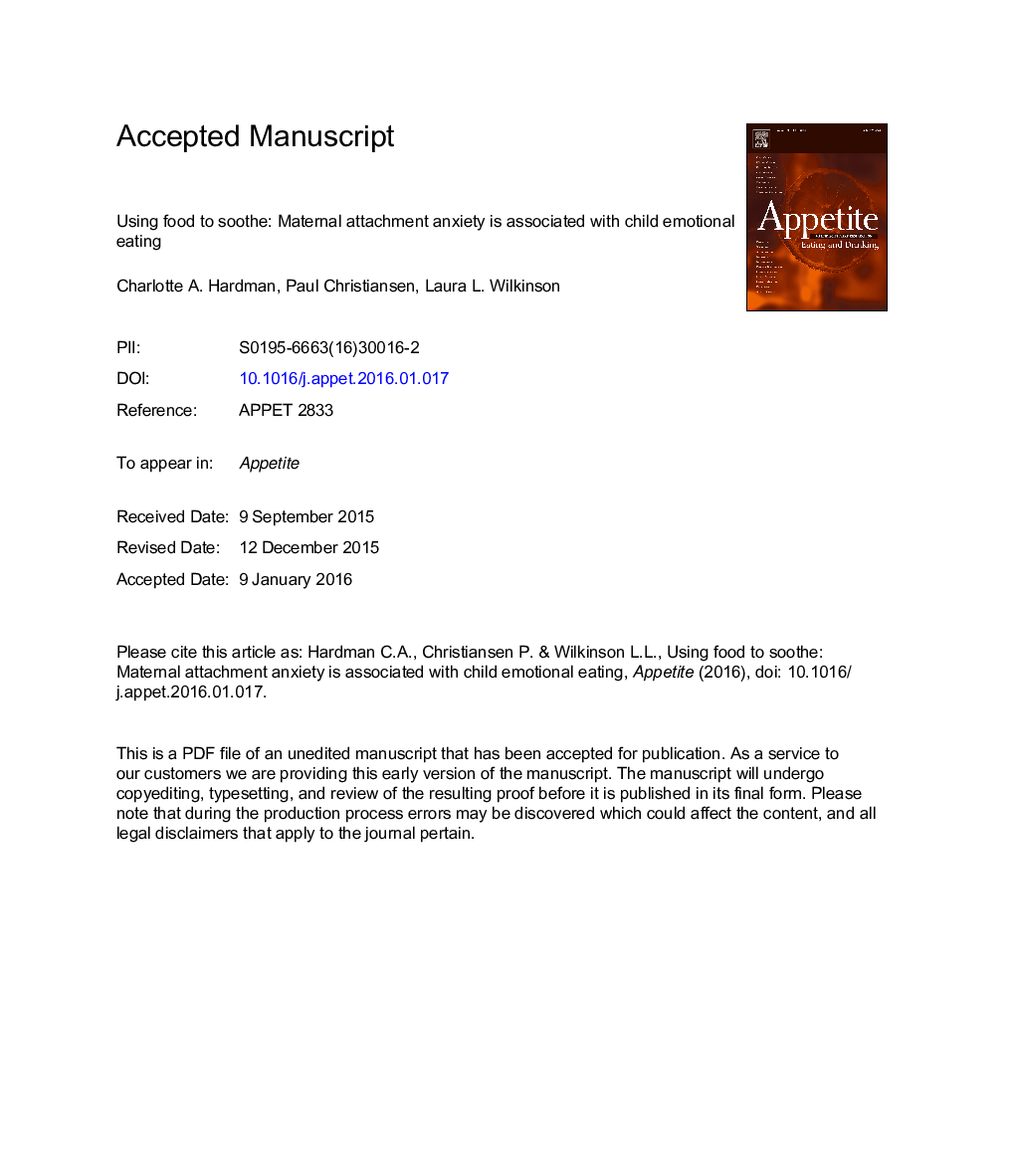| Article ID | Journal | Published Year | Pages | File Type |
|---|---|---|---|---|
| 7307703 | Appetite | 2016 | 29 Pages |
Abstract
Attachment anxiety (fear of abandonment) is associated with disinhibited eating in adults. Both maternal disinhibited eating and use of emotional feedings strategies are associated with emotional eating in children. On this basis, the current study sought to determine whether attachment anxiety is an underlying maternal characteristic that predicts parental reports of child emotional over-eating via its effects on maternal disinhibited eating and emotional feeding. Mothers of a preadolescent child (NÂ =Â 116) completed an internet-delivered questionnaire. Maternal attachment anxiety and dietary disinhibition were assessed by the Experiences in Close Relationships questionnaire and the Three Factor Eating Questionnaire, respectively. The Parental Feeding Strategies Questionnaire and the Child Eating Behaviour Questionnaire were used to quantify emotional feeding and child emotional over-eating, respectively. Bias-corrected bootstrapping indicated a significant direct effect of maternal attachment anxiety on child emotional over-eating (i.e., controlling for maternal disinhibited eating and emotional feeding). There was also a significant indirect effect of maternal attachment anxiety on child emotional over-eating via emotional feeding strategies. In a subsequent model to investigate bi-directional relationships, the direct effect of maternal attachment anxiety on emotional feeding strategies was not statistically significant after controlling for child emotional over-eating. There was, however, a significant indirect effect of maternal attachment anxiety on emotional feeding strategies via child emotional over-eating. These findings highlight the influence of maternal attachment anxiety on parental reports of aberrant eating behaviour in children. While this may be partly due to use of emotional feeding strategies, there is stronger evidence for a “child-responsive” model whereby anxiously-attached mothers use these feeding practices in response to perceived emotional over-eating in the child.
Keywords
Related Topics
Life Sciences
Agricultural and Biological Sciences
Food Science
Authors
Charlotte A. Hardman, Paul Christiansen, Laura L. Wilkinson,
